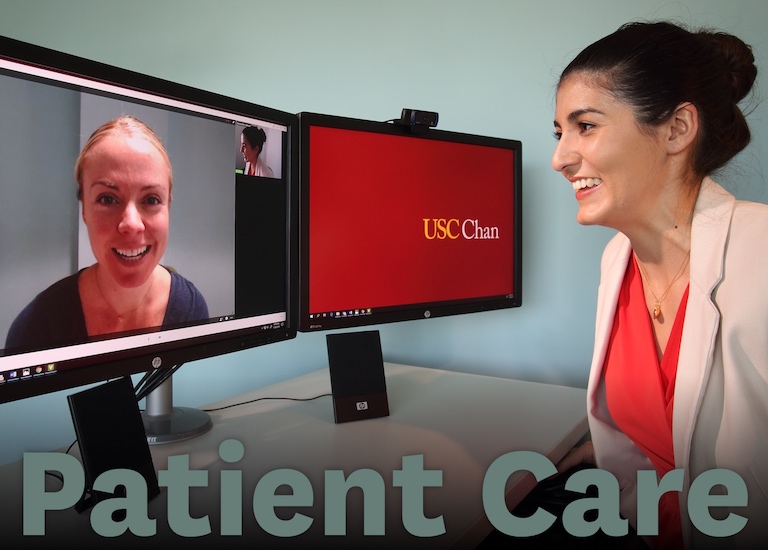
Hand and Upper Extremity Therapy
When your hands are not performing in the way that you are used to, it can be disruptive to the flow of your life. We use our hands to cook our favorite meals, play instruments, to drive to work and for other meaningful activities throughout the day. This use is so natural, we rarely think about our hands until we encounter challenges. These challenges may present as feelings of numbness, tingling, discomfort, pain, or a combination of different symptoms. You may also notice it is harder to perform activities you need and want to do.
At the USC Occupational Therapy Faculty Practice, we have developed the first-ever hybrid model between hand therapy and Lifestyle Redesign®. Our occupational therapists provide highly customized interventions to address the needs of patients experiencing challenges with the use of their hands and/or upper extremity due to repetitive stress injuries, chronic conditions, or other specific impairments. Treatment is tailored to you and your needs by using soft tissue massage, thermal modalities, therapeutic exercises and more. Your occupational therapist will collaborate with you to address lifestyle factors that impact recovery and quality of life. They will also work with you to modify your daily routines, identify risk factors for injury in your environment, and provide education on modifications and strategies to help you maximize function.
We can help you:
- Manage symptoms related to carpal tunnel, golfer’s/tennis elbow, arthritis, and other hand/upper body conditions
- Learn therapeutic exercises to strengthen fine motor skills
- Apply joint protection techniques
- Explore adaptive equipment
- Modify everyday tasks to manage pain and improve performance
- Provide training on ergonomics and body mechanics
- Learn to utilize a splint to ensure stability and support
- Manage stress that could exacerbate your symptoms
Get more information/contact us
To make an appointment, or for more information, contact us today!





